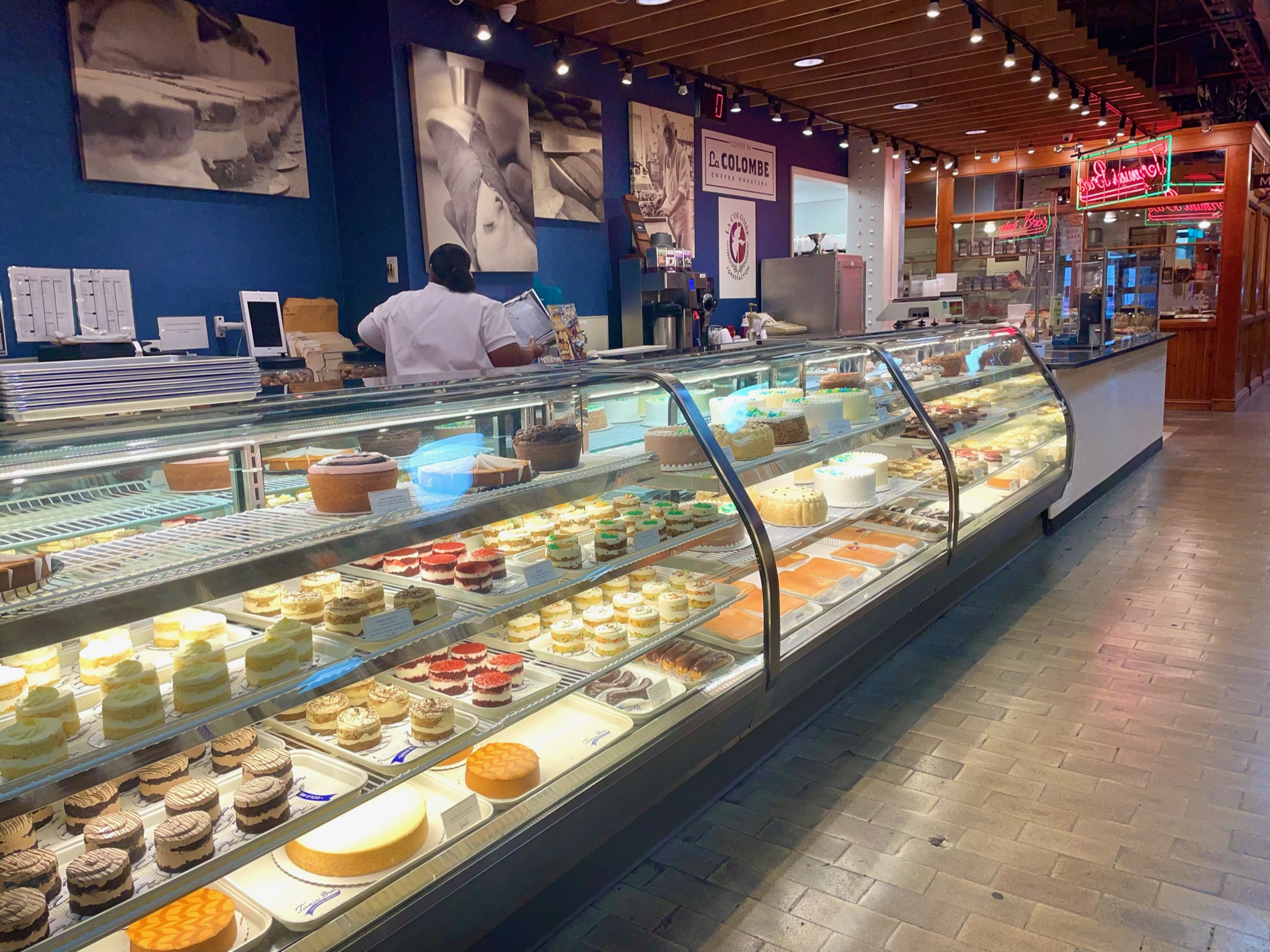By Helen Ehrlich, Staff Writer
The Reading Terminal Market (RTM) is the most visited destination in Philadelphia, drawing in over 100,000 visitors each week. The bustling stalls and swarms of people create an environment full of opportunity to discover new foods, products and stories.
RTM is considered one of the top tourist locations in the nation, but it’s also a nutritional cornerstone for the local community and the surrounding college students. RTM’s General Manager Annie Allman explained in a tour of the Market that they are one of the largest Supplemental Nutrition Assistance Program (SNAP) providers in the nation. In 2018, 31% of people in Philadelphia’s congressional district were on SNAP. The number of recipients increased nationally in 2020, with average benefits also getting a boost. This food assistance program is particularly vital in a city that has the distinct presence of food deserts.

Allman, who became General Manager in January 2020, said that she made the decision to take the job with the Market when she saw a butcher’s stand simultaneously serve one customer an expensive cut of meat while also taking the time to deliberately work through what the best option would be for a woman who was trying to be prudent with her SNAP points. Allman explained, “There’s some magic about all of us being together here that creates better things.”
It is the relationship between the Market’s focus on the community and the availability of luxury goods that is so special, said Allman. The Market is a non-profit which redirects some of its earnings to retailers and the surrounding area. This includes coins that visitors deposit in the porcine brass sculpture of RTM’s mascot, Philbert the Pig. RTM sends all money donated to Philbert to the Philly Food Trust.

Each business in Reading Terminal Market is owner-operated. A focus on local merchants is what pulled RTM through events like the Great Depression and the COVID-19 pandemic. They’re now back to full capacity. RTM did not shut their doors, but removed seating and were forced to say goodbye to the stands that could not withstand the economic toll of the pandemic. Allman said that grocers and butchers did exceptionally well during this time.
The grocers in the market are reshaping with customers’ needs, such as OK Produce, owned by Mercy and Sam Gatuka. OK Produce is the only Black-owned grocery store in Philadelphia, even after aggressive diversification efforts from former Mayor Nutter during his eight years in office, and one of only a few in the country. Sam Gatuka came to Philadelphia in 2018 to work at the University of Pennsylvania after years at the National Health Institute, post-immigration from Kenya nearly 20 years ago. He decided to leave UPenn and open OK Produce, which now serves the local community.
Other stands have been in Reading Terminal Market for generations. Bassetts Ice Cream is the United States’ oldest ice cream company and the oldest vendor in RTM, as the first vendor to sign a lease with them in 1892 (before the market was open). Bassetts is still maintained by the family members, though they no longer make all of their ice cream in the market.

Some businesses represent both stories of immigration and of family history. Kamal’s Middle Eastern Specialties was started by Kamal Albarouki after he immigrated to the United States from Syria in the 1980s. It is now maintained by his children.

Reading Terminal Market was largely built on immigration. Founded in 1893, the market was formerly beneath the tracks of the Philadelphia & Reading Railroad Company. It carried on much of Philadelphia’s strength in markets, and supported the large German immigrant population in the city at the time. Today, there is still a large Pennsylvania Dutch influence and many stands close by 5 p.m. because they’re run by Amish farmers. There are 25 stands owned by those who immigrated to the U.S., and Allman said they’re “trying to reflect all of the diversity that is the city of Philadelphia.”

Legacy plays an important role in the modern maintenance of RTM. The building is legally protected as a historical landmark, and this means certain aspects cannot be changed: Butcher meat hooks hang unused above one stall. A large “BUTTERMILK” sign is incongruously fashioned above a vegan shop. Steel beams are splashed with advertisements. Original market carts that are too heavy to be mobile hold fresh produce and settle in areas undergoing construction.

Many businesses follow this trend by bringing new life to something familiar and historic. Kathy Mirano runs Tambayan, a breakfast-and-lunch counter that serves Filipino food. Fox & Son sell corn dogs and carnival foods, but they’re entirely gluten-free. Sweet T’s Bakeshop is the first Black-owned bakery in the market, and all of their goods are sweet potato-based. Legendary Philadelphia restaurateur KeVen Parker’s Soul Food Cafe was taken over after his passing by Perry Ison, a longtime associate. Ison, who managed the Cafe for Parker for many years, was selected by Reading Terminal Market to be their new soul food provider, along with his cousin and co-owner Stacy McCarthy. Ma Lessie, named for Ison’s grandmother, was originally a food truck and is now the youngest business in RTM.

Reading Terminal Market is adapting so it can continue to serve its greater purpose of serving its community. Whether they’re offering cooking classes, working to expand the 50% of women-owned businesses in the Market or serving as a wedding/party venue, they’re seeking to provide something for everyone. Allman reflected, “As the city changes, it’s reflected within the market.”
Image credit: Helen Ehrlich

1 comment
Would have loved to talk to you about my shop in the Reading Terminal Market! Maybe next time….
Andrew Celwyn ’90